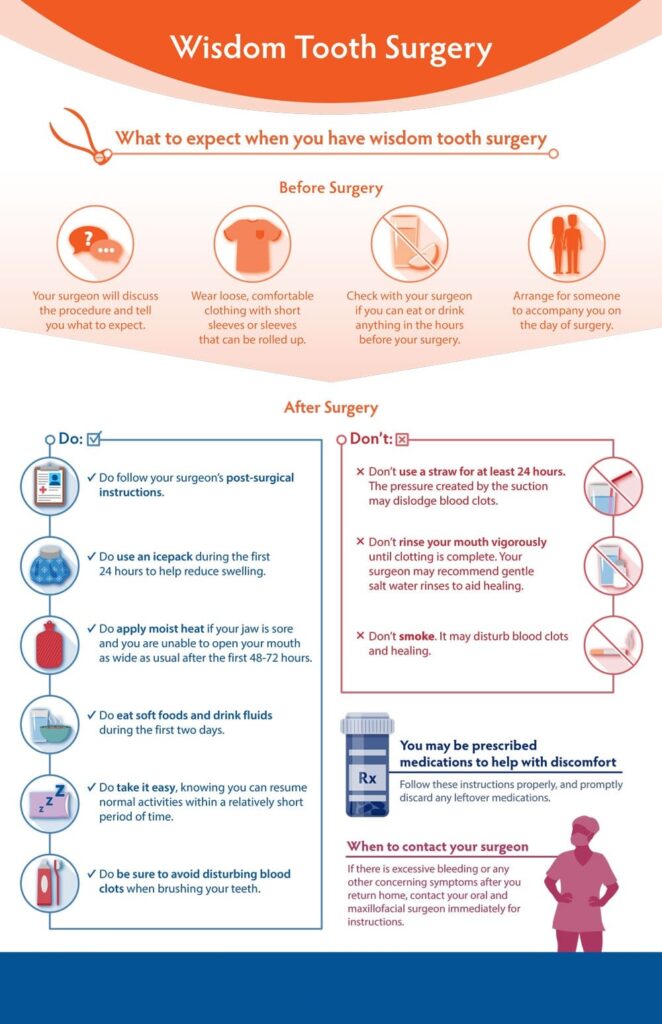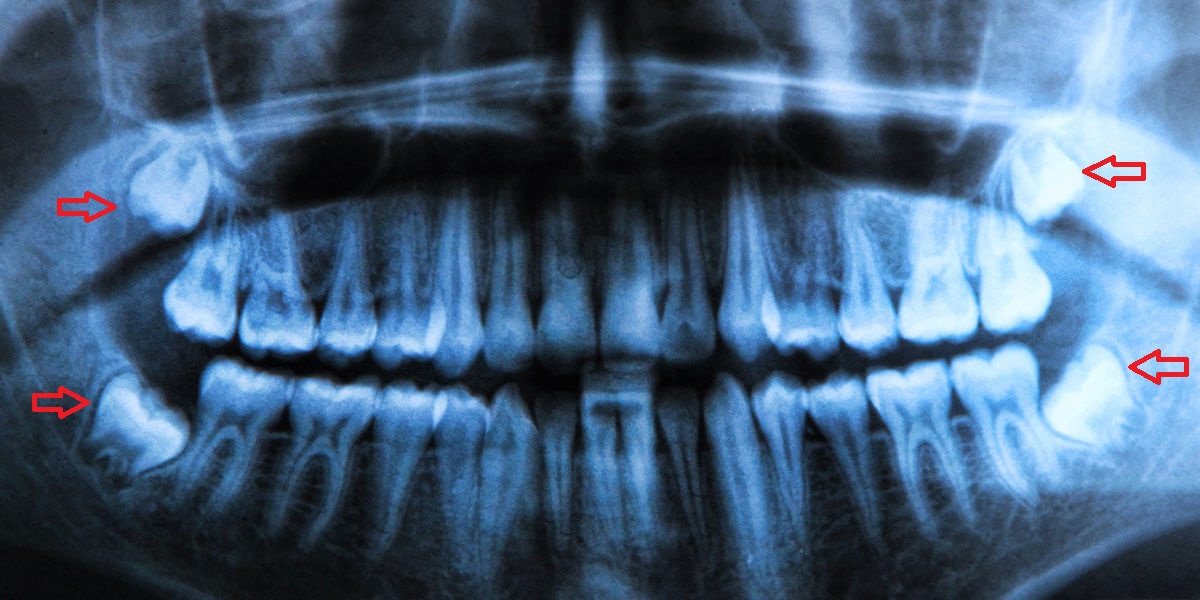If a tooth has decayed beyond repair, our dentist will suggest you extract the affected tooth.
Tooth extractions are also carried out in the following cases:
- Improper development of wisdom teeth
- Extra teeth obstructing other teeth
- Baby teeth that don’t fall out, obstructing permanent teeth.
Wisdom tooth
Wisdom teeth, or third molars, are the last permanent teeth to appear (erupt) in the mouth. These teeth usually appear between the ages of 17 and 25. Some people never develop wisdom teeth. For others, wisdom teeth erupt normally — just as their other molars did — and cause no problems.
If a wisdom tooth doesn’t have room to grow (impacted wisdom tooth), resulting in pain, infection or other dental problems, you’ll likely need to have it pulled. Wisdom tooth extraction may be done by a dentist or an oral surgeon.
To prevent potential future problems, some dentists and oral surgeons recommend wisdom tooth extraction even if impacted teeth aren’t currently causing problems.

An impacted wisdom tooth may:
- Grow at an angle toward the next tooth (second molar)
- Grow at an angle toward the back of the mouth
- Grow at a right angle to the other teeth, as if the wisdom tooth is “lying down” within the jawbone
- Grow straight up or down like other teeth but stay trapped within the jawbone.
Problems with impacted wisdom teeth
You’ll likely need your impacted wisdom tooth pulled if it results in problems such as:
- Pain
- Trapping food and debris behind the wisdom tooth
- Infection or gum disease (periodontal disease)
- Tooth decay in a partially erupted wisdom tooth
- Damage to a nearby tooth or surrounding bone
- Development of a fluid-filled sac (cyst) around the wisdom tooth
- Complications with orthodontic treatments to straighten other teeth
Is it good to remove wisdom teeth?
Every person is unique. If your wisdom teeth aren’t causing any problems, then there’s usually no reason to have them removed. If your wisdom teeth are causing problems, we’ll recommend removing them as soon as possible. Especially for teenagers, getting wisdom teeth extracted is a proactive way to prevent painful impaction, gum inflammation, and other issues in the future.
Do tooth extractions hurt?
Our team will ensure you are numb and comfortable during the procedure. After the extraction, we may prescribe medications to manage any discomfort or infection.
Can I eat and drink after my extraction?
Eat soft food and liquids for 24 hours after an extraction. Avoid hard, sharp, and sticky foods until you are fully healed.
How long does it take to recover from a tooth extraction?
We’ll help you know what to expect and provide specific aftercare instructions for you. In general, expect to take it easy and eat carefully for 2-3 days after an extraction.


